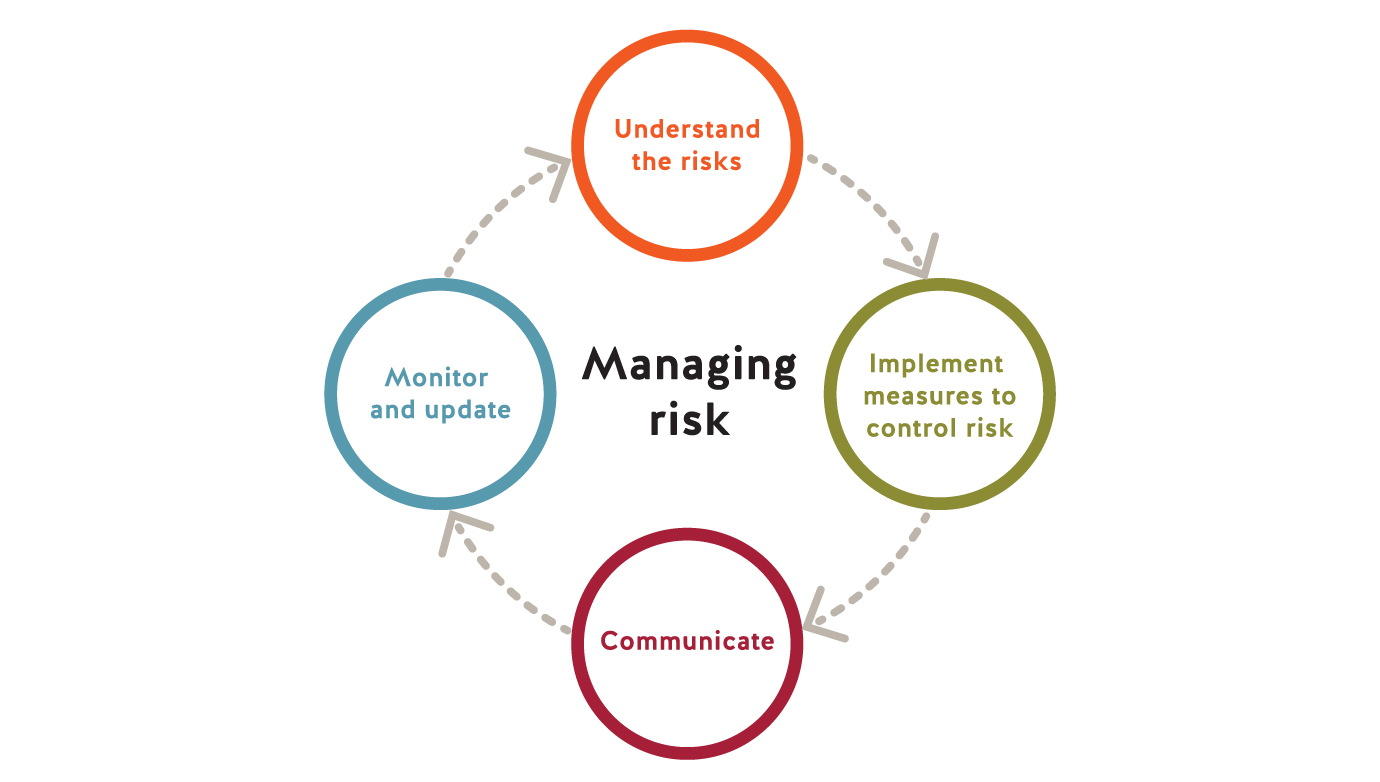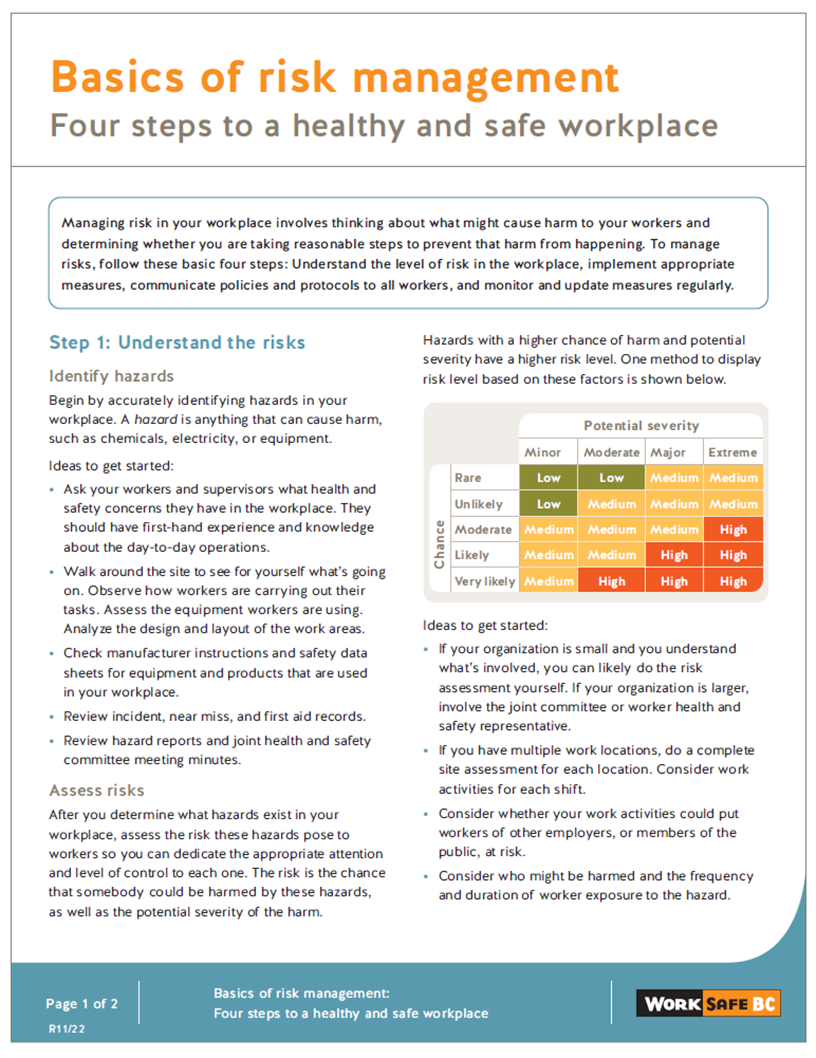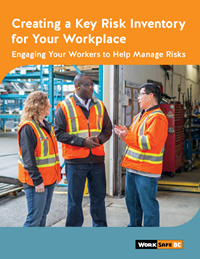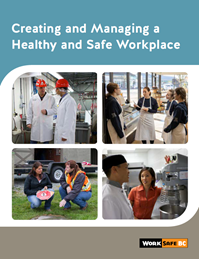Managing risk
Managing risk in your workplace involves thinking about what might cause harm to your workers and determining whether you are taking reasonable steps to prevent that harm from happening.

To manage risks, follow these basic four steps:
-
1
Understand the risks
Begin by identifying hazards in your workplace. A hazard is anything that may cause harm, such as chemicals, electricity, or equipment.
After you determine what hazards exist in your workplace, the next step is to assess the risk these hazards pose to workers, so you can dedicate the appropriate attention and level of control to each one. The risk is the chance that somebody could be harmed by these hazards, as well as the potential severity of harm.
-
2
Implement measures to control risk
The greatest risk should be addressed first. If you cannot eliminate a risk, you’ll need to implement control measures to minimize it. The hierarchy of controls can help you select and implement more effective measures to control risks.
-
3
Communicate
Make sure everyone is aware of your risk management program. Provide managers, supervisors, and workers with orientation and training on how to identify hazards and what to do to control the risks. Document and share your safe work procedures and policies with workers.
-
4
Monitor and update
Monitor the effectiveness of the control measures in place and improve those that are not working as intended. Look for new or changing hazards and risks when you conduct your regular safety inspections, and make sure you are observing and supervising work activities that have a higher level of risk.
As an employer, you need to be aware of emerging risks, which can go unnoticed until a serious or fatal injury occurs. We provide risk advisories on new and emerging risks for various industry sectors and other general health and safety issues.
Highlights
- New online tool helps workers and employers manage risk by delivering a custom list of health and safety resources Published on: December 05, 2022
- New resources help you manage risks in your workplace Published on: April 14, 2022




